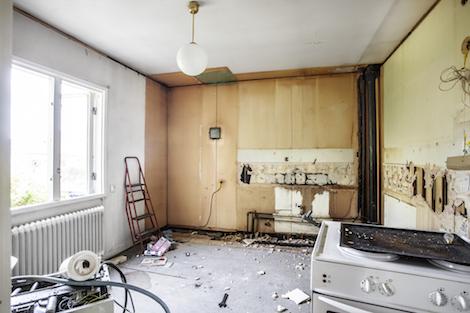Last year, home flipping reached its highest rate since 2006, according to ATTOM Data Solution’s 2019 U.S. Home Flipping Report, released Thursday. Butt despite the increase, profit margins have dropped, the report shows.
In 2019, 245,864 single-family homes and condos in the U.S were flipped—that represents 6.2% of all home sales during the year. Those home flips generated a gross profit, on average, of $62,900 nationwide, representing the difference between the median sales price and the median paid by investors. That is down 3.2% from $65,000 in 2018.
That’s not to say that the home-flipping industry is tanking or losing its allure for investors, says Todd Teta, chief product officer at ATTOM Data Solutions. Home-flipping rates are still higher than they’ve been in years, he says, but the cost of buying properties has been rising faster than have gains on resale in recent months.
“Home-flipping profits across the U.S. dropped again in 2019 as the business of buying and selling houses absorbed its worst year since the housing market was mired in the fallout from the Great Recession,” Teta says.
The average gross flipping profit represented about a 40.6% return on investment compared to the original acquisition price, the ATTOM Data Solutions report shows. The latest average return on home flips is now at the lowest point since 2011. The gross profit figures do not include the cost of rehabbing the properties, which will also reduce profitability.
More investors used cash to pay for their flips. The percentage of flipped homes purchased with financing decreased in 2019 to 43.8% compared to 45.9% in 2018. More than half—56.2%—of homes flipped in 2019 were paid with all cash.
Home flips increased in the portion of home sales from 2018 to 2019 in 122 of the 190 metro areas ATTOM researchers tracked. The largest annual increases were in: Laredo, Texas (up 103.5%); Raleigh, N.C. (up 59.8%); Charlotte, N.C. (up 44.1%); Fort Smith, Ark. (up 43.2%); and Columbus, Ga. (up 40.5%).
Meanwhile, the largest decreases in flipping rates were in Seattle (down 16.9%); Indianapolis (down 9.1%); Grand Rapids, Mich. (down 8%); and Rochester, N.Y. (down 5.9%).
Source: ATTOM Data Solutions













